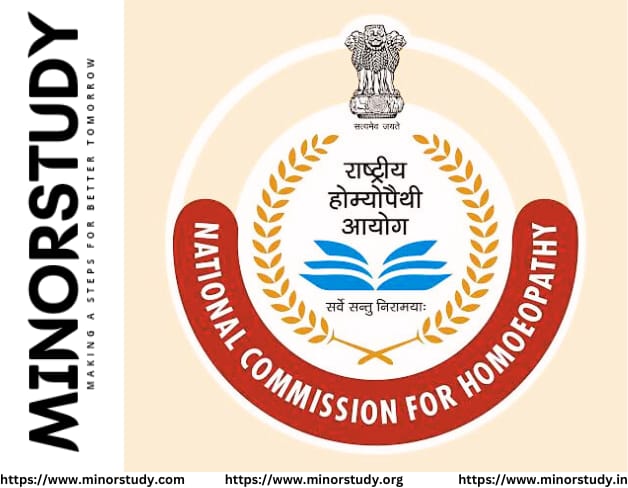🌿 National Commission for Homoeopathy: History, Timeline, Facts, FAQs, Significance, and Life Impact
The National Commission for Homoeopathy (NCH) has emerged as a vital regulatory body dedicated to enhancing the standards, accountability, and delivery of Homoeopathy in India. Rooted in tradition yet forward-looking, the Commission ensures that the practice of Homoeopathy remains science-based, people-oriented, and aligned with modern healthcare needs.
- 🏛️ History of the National Commission for Homoeopathy
- 📜 Timeline of Major Events
- 📌 Key Facts About the NCH
- 🎯 Significance of the National Commission for Homoeopathy
- 1. Quality Control in Education
- 2. Restoring Public Faith
- 3. Bringing Homoeopathy to the Digital Age
- 4. Holistic Health Promotion
- 💬 Frequently Asked Questions (FAQs)
- Q1: Is Homoeopathy recognized by the Government of India?
- Q2: Can a Homoeopathy graduate practice allopathic medicine?
- Q3: What is the role of the National Commission for Homoeopathy?
- Q4: Is NCH equivalent to the National Medical Commission (NMC)?
- Q5: What exams are conducted by NCH?
- 🧭 Observance and Alignment with National Goals
- 🌟 7 Powerful Reasons Why NCH Matters in Our Daily Lives
- 🎉 Wishing for Progress and Prosperity
- 🏁 Conclusion: A Giant Leap for Holistic Healthcare
- 📝 Important Takeaways
Let’s explore the detailed journey, importance, societal role, and human impact of the NCH in a compassionate and informative manner.
🏛️ History of the National Commission for Homoeopathy
The roots of the National Commission for Homoeopathy trace back to the regulatory systems that governed Homoeopathy under the Central Council of Homoeopathy (CCH), formed in 1973 under the Homoeopathy Central Council Act. While CCH laid a strong foundation, by the 2010s, calls for reform intensified due to evolving needs in medical education and practice.
The Turning Point: 2020 Legislation
On 20th September 2020, the Parliament of India passed the National Commission for Homoeopathy Act, 2020, replacing the old Central Council. The goal was to bring efficiency, transparency, and accountability to Homoeopathy education and research, akin to reforms in other medical fields like allopathy and Ayurveda.
📜 Timeline of Major Events
| Year | Milestone |
|---|---|
| 1973 | Central Council of Homoeopathy (CCH) established |
| 2017 | Push for reforms due to irregularities and inefficiencies in the CCH |
| 2020 | National Commission for Homoeopathy Act passed |
| 2021 | NCH formally begins operations, replacing CCH |
| 2023 | Integration of NCH into the national Ayush education strategy |
| 2024 | Digitalization and modernization initiatives launched by NCH |
📌 Key Facts About the NCH
Constituted Under: National Commission for Homoeopathy Act, 2020
Supervises: Undergraduate and postgraduate Homoeopathy education in India
Oversees: Professional ethics, standards, and assessment for Homoeopathic practitioners
Regulates: Admission norms via a National Exit Test (NEXT) for Homoeopathy
Collaborates With: Ministry of AYUSH, National Medical Commission, and international Homoeopathy councils
Headquarters: New Delhi, India
Key Body Members: President, Vice President, and Autonomous Boards (like Education Board, Ethics Board)
🎯 Significance of the National Commission for Homoeopathy
The establishment of the NCH isn’t just a bureaucratic upgrade. It carries deep significance for patients, students, educators, and the overall medical ecosystem.
1. Quality Control in Education
Earlier, many Homoeopathy colleges lacked infrastructure and quality teaching. The NCH enforces standardized curriculum, transparent admissions, and regular assessments, ensuring only competent professionals enter the field.
2. Restoring Public Faith
By introducing ethics and grievance redressal boards, the NCH ensures practitioners adhere to professional conduct, significantly boosting trust among the general public.
3. Bringing Homoeopathy to the Digital Age
With initiatives like e-learning, digital repository of medicines, and AI-supported research, the NCH is making Homoeopathy relevant for 21st-century medicine.
4. Holistic Health Promotion
The NCH supports integrated healthcare, where Homoeopathy complements modern medicine. This gives patients more choices and often fewer side effects.
💬 Frequently Asked Questions (FAQs)
Q1: Is Homoeopathy recognized by the Government of India?
Yes. Homoeopathy is officially recognized and governed by the Ministry of AYUSH through the NCH.
Q2: Can a Homoeopathy graduate practice allopathic medicine?
No. A BHMS degree holder cannot legally practice modern allopathic medicine without additional qualifications and legal permissions.
Q3: What is the role of the National Commission for Homoeopathy?
The NCH is responsible for overseeing Homoeopathy education, regulating practices, conducting national exit tests, and maintaining ethical standards.
Q4: Is NCH equivalent to the National Medical Commission (NMC)?
Yes, in structure and mandate. While NMC regulates allopathic medicine, NCH regulates Homoeopathy.
Q5: What exams are conducted by NCH?
NCH plans to introduce a National Exit Test (NEXT) for Homoeopathy graduates for licensure and postgraduate admission.
🧭 Observance and Alignment with National Goals
The NCH observes National Ayush Mission days, World Homoeopathy Day (April 10th), and collaborates with various educational and research initiatives.
It aligns with the government’s larger goals such as:
Make in India: Promoting indigenous medical systems
Skill India: Producing globally competent Homoeopaths
Digital India: E-records of Homoeopathic treatments
Global Health Diplomacy: Sharing Homoeopathy with the world
🌟 7 Powerful Reasons Why NCH Matters in Our Daily Lives
Improved Health Access – Homoeopathy is cost-effective and NCH makes it more structured and available even in rural India.
Better Student Opportunities – Transparent processes empower genuine students to become ethical practitioners.
Scientific Research Support – Encourages evidence-based trials in Homoeopathy, increasing medical credibility.
Safeguarding Patients – Ethical codes and regulatory oversight protect patients from malpractice.
Encouraging Public Participation – The grievance mechanism allows common people to report issues.
Career Mobility – With quality education, Indian Homoeopaths can now apply internationally.
Social Respect for Homoeopathy – The NCH is rebuilding societal faith in this traditional system of medicine.
🎉 Wishing for Progress and Prosperity
On behalf of every citizen who values holistic well-being, we extend our heartfelt wishes for the continued success of the National Commission for Homoeopathy. May this institution help millions regain health naturally and harmoniously.
“May the healing spirit of Homoeopathy, under the stewardship of NCH, reach every village, every home, and every heart.”
🏁 Conclusion: A Giant Leap for Holistic Healthcare
The National Commission for Homoeopathy is not just a regulatory body—it is a symbol of reform, hope, and forward-thinking in India’s vast healthcare ecosystem. By blending tradition with technology, ethics with efficiency, and regulation with empathy, NCH ensures that Homoeopathy holds a meaningful place in the 21st-century world.
In our daily lives, it means more access, more trust, and more health options—especially for those who seek natural and gentle remedies.
📝 Important Takeaways
NCH was established in 2020, replacing CCH for better governance.
It regulates Homoeopathy education, ethics, and licensure.
It plays a pivotal role in mainstreaming Homoeopathy alongside modern systems.
NCH aims to globalize Indian Homoeopathy through research and education.
It has improved transparency, curbed malpractices, and restored public trust.








